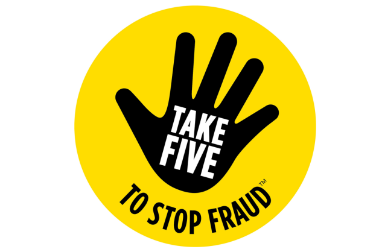Travelling abroad this summer? If you are an National Treasury Bank client, let us know the dates of your journey and the countries you are visiting. This will reduce the likelihood of transactions being blocked.
Also see our top tips to protect you from fraud while travelling:
- Avoid using ATM machines in remote areas. If you spot anything unusual or signs of tampering, do not use the machine. Do not accept help from strangers.
- Fraudsters can fit devices to trap your card in an ATM machine. If your card is swallowed by an ATM, or you feel your card details have been compromised, call us immediately.
- Check receipts carefully before paying and be aware of double charging. Make sure the first payment has been cancelled if an error is made. Keep your receipts to cross-check with your bank statement
- Never hand over your card or let it out of your sight and take extra care to shield your PIN number when entering it.
- Remember that free Wi-Fi is unlikely to be on a secure network, so consider what you access when using it.
FCA ScamSmart Campaign:
During recent months, the FCA have launched a ScamSmart campaign offering investors guidance on how to be more vigilant when it comes to investment opportunities.
In order to be a ScamSmart investor the Financial Conduct Authority advise that you:
- Reject any unsolicited contact about investment opportunities.
- Check the FCA warning list
- Get impartial advice

Take Five – To Stop Fraud:
In 2015, $755 million was lost to financial fraud. We can all help to lower this figure by remembering to stop and think.
Take Five, led by Financial Fraud Action UK is encouraging the nation to take time to stop, step back and think before they act.
- Never disclose security details, such as your PIN or full banking password.
- Don’t assume an email, text or phone call is authentic.
- Don’t be rushed – a genuine organisation won’t mind waiting.
- Listen to your instincts – you know if something doesn’t feel right.
- Stay in control – don’t panic and make a decision you’ll regret.

Protect yourself from fraud
Quick Tips
Taking care of your cheques, cards, PINs and other security information is essential to help prevent fraud and protect your accounts. We strongly recommend that you follow the do’s and don’ts, listed below.
Do:
- Memorise your PIN and destroy the PIN notification promptly after receipt.
- Keep your log on and password to internet banking confidential.
- Only deal with reputable companies when using your card for purchases over the phone or through the internet.
- Keep your cards in your possession and never let them out of your sight.
- Check and keep your card receipts and other information about your account containing personal details safe (for example, statements) and get rid of them carefully.
- Take care when storing or getting rid of information about your accounts. People who commit fraud use many methods such as ‘bin raiding’ to get this type of information. Shred anything containing personal data when you want to throw it away.
- Take care when others close by may be trying to see you enter your PIN.
- Be aware that your post is valuable information in the wrong hands. If you don’t receive a bank statement, card statement or any other expected financial information, contact us.
Don’t:
- Respond to ‘phishing’* emails requesting information (account details, card numbers, PINs or passwords). We will never request information from you by email and it is our policy not to send personal data to you by email.
- Share your PIN with anyone.
- Leave gaps on cheques.
- Keep large sums of cash at home.
*Phishing is an increasingly common type of spam that can lead to theft of your personal details such as credit card numbers or online banking passwords. Phishing attacks work by the scam artist sending “spoof” emails that appear to come from a legitimate website that you have online dealings with. The email may ask you to reply with your account details in order to “update security” or for some other reason.
Cybercrime
Phishing
Phishing is a practice whereby fraudsters send you an email claiming to represent well-known organisations (e.g. a bank or social media site) and request personal information such as your bank details for verification or recording purposes.
Some phishing emails will threaten to delete any accounts you hold with the organisation they claim to represent, in order to scare you into providing the requested information.
Though these threats are very concerning, we advise that you:
-
- Do not respond to any emails of this nature.
- Limit the amount of personal information you share online.
- Contact the organisation from where the email claims to represent to check if it is genuine.
- Ensure you only enter your bank details on secure networks, signified by a padlock in the top left hand corner of the browser window.
Malware Viruses
Malware is malicious software designed to interfere with the performance of electronic devices such as computers, tablets or mobile phones.
Your device can become infected with malware viruses if you open links or download software or files from suspicious websites and emails. These viruses can log personal information and passwords that you input onto your infected phone or computer and pass them on to a device controlled by the fraudster.
In order to protect your electronic devices from viruses, we suggest that you:
- Install and keep up-to-date antivirus software on your computer.
- Ensure your Firewall is switched on.
- Avoid opening any links contained in pop-up adverts and irregular emails.
Investment Fraud
Boiler Room Scams
Boiler room scammers call your home or mobile phone claiming to be from reputable organisations. Using high pressure tactics, they attempt to persuade you to buy a fraudulent investment. These investments are often worthless or have minimal value and are unlikely to appreciate over time.
Investing in Fine Wine
Fine wine investment scammers will often call with offers on great deals and not-to-be-missed opportunities. They will send paperwork and sometimes the wine too. Often everything appears normal – until the victim decides to cash in their investment.
It is at this stage the fraudster prolongs the procedure with excuses such as ‘we would advise you to wait three weeks for a better price’ or ‘there is no one buying this wine at the moment’.
The company then suddenly vanishes or goes into liquidation.
Before you commit to an investment, make sure you:
- Are dealing with an honest, reputable business with a successful track record in the trade.
- Know the wine you are buying comes from a reliable origin.
- Understand the small print.
- Don’t fall for hard sales tactics.
Identity Fraud
Identity fraud is the criminal activity of using a stolen identity to obtain goods or services by deception. Fraudsters start with the most basic information to build a picture of your financial affairs. Once fraudsters have sufficient information they can use your identity to:
- Open bank accounts.
- Take over existing bank accounts.
- Obtain genuine documents.
- Borrow money.
We advise that you:
- Shred documents which feature personal information such as receipts, bank statements etc.
- Password protect your laptop, mobile phone and any other devices. Create strong passwords.
- Install anti-virus software on your laptop and any other devices. Make sure you keep it up-to-date.
- Take care on public Wi-Fi because fraudsters are able to hack or mimic them. If you are using them, avoid using sensitive apps such as mobile banking.
- Redirect your post if you move address to help prevent your personal details falling into the wrong hands.
Debit & Credit Card Fraud
This type of fraud covers instances where fraudsters use stolen credit or debit cards, or the details, to buy goods or services. It is particularly important to be aware of card fraud given the development of contactless payment technology. Those using stolen cards will not need your PIN to process payments in stores with contactless card readers.
We advise that you:
- Memorise your PIN and shield the number pad when entering it at a cash point or retail store.
- Never share your PIN with anyone.
- Always keep your card secure in your wallet or purse.
- Always keep your card within your sight when handing it over to a cashier.
- If your card is retained by a cash machine, contact the owner of the cash machine immediately and notify your bank to cancel the card.
Cheque Fraud
- Counterfeit cheque fraud is where fraudsters create fake cheques using genuine account details.
- Forged cheque fraud is when a genuine cheque has been stolen and used by a fraudster with a forged signature.
- Fraudulently altered cheques are genuine cheques that have been altered by a fraudster before being paid in.
In order to protect yourself against cheque fraud we advise that you:
- Draw a line through all unused space after both the payee name and the amount.
- If you make an error, sign against any corrections or better still, destroy the cheque and write another.
- Never sign a cheque and leave the payee blank.
- Never accept a cheque from someone, unless you know and trust them. Be especially wary when accepting a high–value cheque; for instance if you are selling a car.

